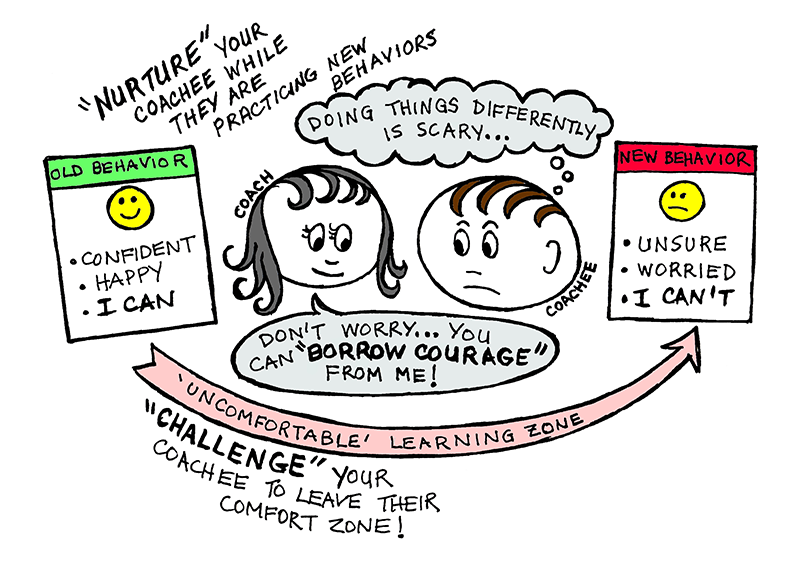In her many years as a coach, Karyn Ross has found an alternative to the current paradigm of changing mindsets. The Lean Post recently sat down with Karyn to hear about this new approach and the psychology behind it.
Can you describe to me the prevailing paradigm of changing mindsets in coaching?
In my experience working with a variety of organizations, large and small, mostly focused on services, the paradigm is that if we want people to “do things” differently, in the new, “lean” way, we have to change their mindsets first. So, in an effort to convince people to change their minds, we create long training classes with information about why they would want to do the new thing, and all of the possible benefits. Then we send people to those training classes with the expectation that once they’ve completed the training, their mindsets will be changed and they’ll automatically start doing things differently.
Something about your voice tells me that that doesn’t work.
Not in my experience at all. In general, what happens when people come back from training is…nothing! They continue on with the same behavior they had before! They don’t actually “do” anything differently. Even if people think the ideas presented are very good and could be beneficial, most don’t have the ability to suddenly change their behavior just because they’ve heard about an idea.
Why do you think that is?
A couple of reasons.
The first is, we think that if we tell someone to do something and they say, “Yes, I’m going to do it,”, that the person really is going to do it! Just because we told them to! Unfortunately, it doesn’t work that way. Changing behavior is difficult for most people. And it doesn’t matter what job grade or title a person has. We’re all human beings and doing things in new ways makes us feel uncomfortable.
Second, as human beings, we’re creatures of habit. We get used to doing something the same way and that creates neural pathways in our brain. When we act habitually, our brain makes us feel comfortable and happy. When we feel comfortable and happy we feel like we “know” things, and face it, who doesn’t like to feel that way? And how many people really enjoy being unhappy and uncomfortable because they feel like they “don’t know”?
So, what is your remedy?
I use the opposite paradigm, which is that I have people do things differently first. Once they’ve acted in the new way and have personally experienced the positive results, they change their own mindsets.
For example, let’s say I’m working with a leader and I’d like them to learn how to “go see for themselves” and the benefits of going to the gemba. The first thing I’ll do is schedule our coaching times together at the gemba, not in the leader’s office, saying “Please meet me in this area, and here’s what we are going to look for.” After we’ve gone to see together, and the leader has had the new, eye-opening experience, I’ll follow up with a quick bit of theory, right then and there.
How do you help people over the feeling of being uncomfortable?
I’m going to use the words “challenge” and “nurture.” Together, they’re the basis of my coaching philosophy. When I work with someone to change their behavior I know that they’re going to be uncomfortable. So, I first “challenge” and push them to move outside of their comfort zone. Then, I stay with them (often standing right beside them!) as they try out the new behavior. That’s the “nurture” part that’s so often missed by many coaches. When our coachee is in the uncomfortable learning zone, we, as coaches, need to be right by their side for support and encouragement as they practice the new behavior under our watchful eye. If we “challenge” people to act differently, but don’t then “nurture” them while they practice the new behavior, we’re leaving them on their own to “sink or swim”. In my opinion that’s very disrespectful. People who are in the uncomfortable learning zone need to “borrow courage” to act in new ways. And the person they borrow that courage from is their coach.

What’s the most important piece of advice you can give to other coaches?
Remember that the people you are coaching are human beings. That they’re going to feel uncomfortable when you “challenge” them to do things in new and different ways, and that you need to care for and “nurture” them along as they gain the confidence that can only come from doing.





